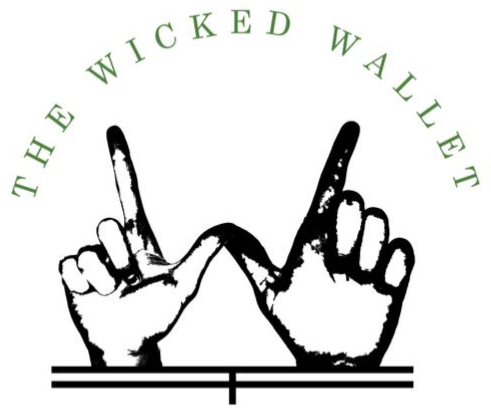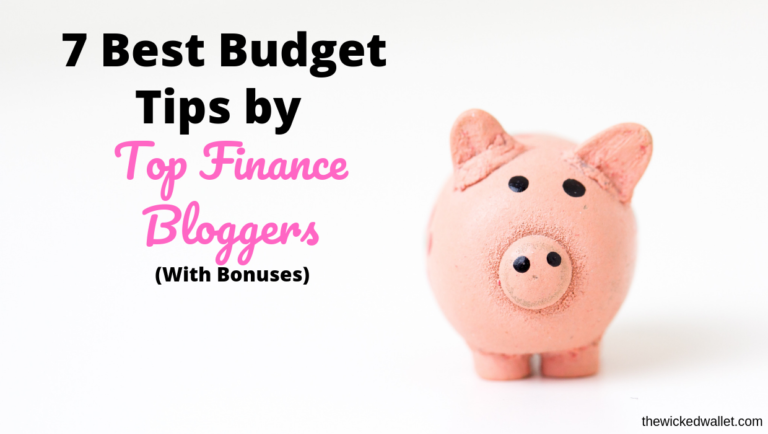Budgets are like diets.
People are highly motivated when they first start one, ready to conquer the world and eager to share with everyone. But then, after some time has passed, that motivation slowly dwindles away and they’re back to square one.
The spark of the motivation that gets you started could stem from a variety of factors, but what if we could keep that motivation as strong as it was at the beginning? Well, you can. You just have to find the right budget for you. That is the goal of this post. To help invigorate your budget dedication by discovering some of the best budget tips given by some of the most successful financial bloggers. By implementing one or more of the tips below you will be able to create the easy-to-stick-to budget you’ve been searching for.
Lastly, before we get started, just remember that motivation gets you started but discipline is what makes you successful.
#1. The Anti-Budget by Afford Anything
Raise your hand if you despise tracking pennies! If your hand is in the air, this budget is definitely for you. Paula explains her strategy of pulling savings off the top of your income and anything leftover is your spend amount. Savings is debt payments, investments or actual money going into a savings account. The leftover amount should be divided up between all your expenses (i.e. food, bills, entertainment). Paula makes the argument that although budgets are necessary to track your spending, you do not need to know line by line where every dollar is going. Instead, she says you should be using that energy towards focusing on growing your percent saved.
#2. Going Broke to Win Big Budget by Financial Samurai
Are you inclined to spend money if you just see it lying around? If you’re even debating saying yes then this could be the right fit for you. Sam talks about setting up three completely separate bank accounts (at completely different banks). One account (#1 The Go Broke Bank) is where your paycheck will go and you will pay bills from. This bank account is quite literally the one where you will always be going broke. You will use this bank account to pay bank account #2 as well. The Freedom Bank, or second bank account is specifically for long term savings, he states you want this to be strictly “money markets and CDs” and a style of account that makes it difficult to withdraw the money. Lastly, the third bank account is The Lockdown Bank. #3 is used for debt, so mortgages, car loans, personal loans, etc. Sam does this to “compartmentalize your debt which may relieve you of any mental stress related to this debt”. Out of sight, out of mind is Sam’s tactic with this strategy so the point is to really only have access into your Broke Account where you will see no extra dollars hanging around.
#3. Family Budget Meetings by Making Sense of Cents
Money isn’t a natural topic for many to talk about, but Michelle argues that it needs to be for your financial health. In fact she recommends having frequent money meetings with your spouse/family. By having an accountability partner, setting the ground rules and building a budget around your family values you are far more likely to succeed. These meetings should be on a regular basis to keep constant communication and ensure everyone is on the same page. Michelle even went as far as providing this free budget template for anyone who would rather use the pen and paper method.
#4. How to Start a Budget When You Suck At Budgeting with The Busy Budgeter
Rosemarie outlines exact steps to take with real life examples on how to start a budget that will last. She runs you through her personal success (cutting her spending by $23k a year!) and shares her secrets on how it worked. This is the best fit for anyone who has either never budgeted before or really wants to get back to the basics. Rosemarie was also kind enough to create a free 90 day budget boot camp for beginners. This will help you keep accountable with your budget and once you are sticking to it for 3 months, it is sure to be a habit.
#5. Budgets Suck, Do this Instead With Millennial Revolution
Firecracker explores how budgets, similar to straitjackets, offer far too little freedom. She explores the meaning of money and how in order to have a successful budget, you have to identify what matters most to you. Once you have identified what makes you happiest and therefore what you are not willing to live without, you can set a budget around those instead of severely cutting back on every and anything in order to save a penny. This will help you make a budget that actually sticks and not feel like you are utterly deprived.
#6. Minimalism and Financial Freedom by Millennial Money
So this article isn’t solely about budgeting however the end goal for budgeting is to have financial stability and eventually financial independence (whether you want the option of leaving work or not) this post outlines the most vital steps to take towards the end goal of financial independence. It outlines how keeping things simple and minimalistic will not only cause less headaches, but also provide a plan you are more likely to stick to.
#7. Best Budgeting Apps of 2018 by Get Rich Slowly
2018, so this must be outdated right? Nope. Although we are now in 2019, these apps are still relevant and quite popular (all except level money which unfortunately has shut down). In his review, J.D. Roth outlines 5 different apps that each have the similar goal of helping you budget (there are 6 total apps but since level money is no longer an option, I did not include it). His assessment includes what each app is, what he specifically likes and doesn’t like and completes the evaluation with a final score on the app. This can be incredibly useful if you are looking to streamline your budget into the digital world however you don’t want to or don’t have the time to experiment with which might be best for you.
BONUS #1:
I personally use Mint and Personal Capital. Both are great tools to help you track your spending and create an easy-to-stick-to budget. Each is user-friendly and helpful. Both have visually appealing dashboards and have helped me keep track of my savings and spending. I prefer mint for budgeting and personal capital for tracking investments.
BONUS #2: Financial Independence Spreadsheet by the Mad Fientist
Brandon provides an extremely useful spreadsheet (for FREE!) that he personally used to reach financial independence. It outlines what you need to track and how frequently you should be updating metrics. He also has a tab dedicated completely to your Financial Independence (FI) projections, where you can analyze areas that may need more attention so that you can meet your FI number in your specified timeframe. I would highly recommend this tool to anyone who is serious about reaching FI and wants to see not only a high-level view of their financial performance but also ways and areas to improve.
Closing Thoughts
The fact alone that you care enough to want to improve your budget is a step in the right direction and you should be proud of yourself for that. By using one or more of the tips and tactics outlined above to create a lasting budget will help you immensely on your path to a better financial health. Just remember, motivation may get you started but discipline is what makes you successful.



